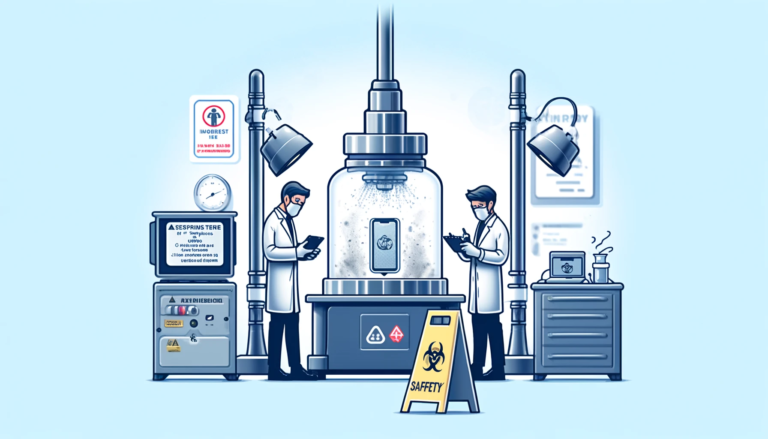In today’s rapidly evolving market, ensuring the durability and reliability of products is more crucial than ever. For manufacturers, this means rigorous testing to meet various standards and requirements. One such essential test is Ingress Protection (IP) testing. This blog explores how IP testing benefits manufacturers by enhancing product quality, compliance, and customer satisfaction.
Imagine buying a high-end electronic gadget only to find it malfunctioning after a splash of water or a bit of dust gets inside. For manufacturers, such scenarios translate to costly returns, damage to reputation, and potential legal issues. This is where Ingress Protection (IP) testing comes into play. By evaluating how well a product resists dust and water ingress, IP testing ensures products can withstand the rigors of their intended environments. In this blog, we’ll dive into the advantages of IP testing for manufacturers and how it can drive product excellence.
Understanding IP Testing
What is IP Testing?
Ingress Protection testing evaluates a product’s ability to resist the intrusion of solid objects (like dust) and liquids (like water). Products are assigned an IP rating based on their performance during these tests. The rating is expressed as two digits: the first indicates protection against solids, and the second denotes protection against liquids. For example, an IP65 rating means the product is dust-tight and protected against water jets.
Why is IP Testing Important?
Enhancing Product Durability
IP testing helps manufacturers ensure that their products can endure challenging environments. Whether it’s outdoor electronics exposed to rain or machinery in dusty industrial settings, testing verifies that the products remain functional and safe. For instance, outdoor security cameras undergo IP testing to ensure they can withstand rain and dust without compromising performance.
Meeting Regulatory Standards
Many industries have stringent regulations requiring specific IP ratings for products. By conducting IP testing, manufacturers can demonstrate compliance with these standards, avoiding legal issues and gaining market access. For example, medical devices often need to meet certain IP ratings to ensure they remain sterile and operational in various conditions.
Reducing Warranty Claims and Returns
Products that pass IP testing are less likely to suffer from ingress-related issues, leading to fewer warranty claims and returns. This not only saves manufacturers money but also enhances customer satisfaction. For example, a manufacturer of ruggedized smartphones that undergoes thorough IP testing will likely experience fewer complaints about device malfunction due to environmental factors.
Boosting Market Competitiveness
An impressive IP rating can be a significant selling point. Products with high IP ratings are often perceived as more durable and reliable. Manufacturers can use these ratings in their marketing strategies to differentiate their products from competitors. For instance, a company producing waterproof smartwatches can leverage their IP68 rating to attract customers seeking high-performance wearable tech.
Improving Product Design
IP testing provides valuable feedback that can guide product design improvements. By identifying weaknesses in sealing or material choices, manufacturers can make necessary adjustments before mass production. For example, a manufacturer might discover that improving gasket designs or using more robust materials enhances the overall IP rating of their product.
Real-World Applications
Consumer Electronics
In consumer electronics, IP ratings are crucial for devices exposed to everyday wear and tear. Smartphones, tablets, and wearables often undergo IP testing to ensure they can handle accidental splashes, dust, and other environmental factors. For example, an IP67 rating on a smartphone ensures it is resistant to dust and can withstand submersion in up to 1 meter of water for 30 minutes.
Industrial Equipment
Industrial machinery often operates in harsh environments with high levels of dust and moisture. IP testing ensures that equipment like control panels and sensors remain operational despite these conditions. For instance, an IP65 rating on an industrial control panel indicates it is protected against dust ingress and low-pressure water jets, making it suitable for use in dusty or wet environments.
Medical Devices
Medical devices must adhere to strict cleanliness and durability standards. IP testing ensures that devices like diagnostic equipment and portable medical units can resist contaminants and moisture, maintaining their functionality and safety. For example, an IP54 rating on a medical device ensures it is protected against limited dust ingress and water spray from any direction.
Ingress Protection testing is more than just a compliance requirement; it’s a strategic advantage for manufacturers. By ensuring products are resilient to dust and water, manufacturers can enhance product quality, meet regulatory standards, reduce returns, and boost their market competitiveness. Investing in IP testing not only safeguards your products but also reinforces your brand’s reputation for reliability and excellence.


